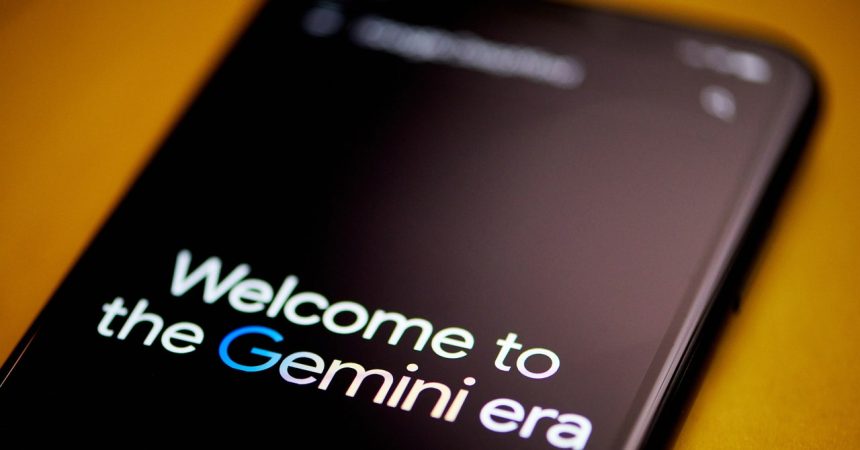Demis Hassabis, CEO of Google DeepMind, envisions a future where artificial intelligence seamlessly integrates with our daily lives, anticipating our needs and augmenting our abilities. This vision is embodied in “Mariner,” an experimental project that aims to revolutionize user interfaces through the power of AI. Mariner, currently in its research prototype phase, serves as a testbed for exploring how AI can transform the way we interact with technology and the world around us. Google’s ambitious foray into this realm is driven by a desire to redefine the boundaries of human-computer interaction, creating a more intuitive and personalized experience.
Central to Mariner’s development is Gemini, Google’s latest large language model (LLM). Launched in December 2023, Gemini represents Google’s answer to OpenAI’s ChatGPT and signifies a crucial step in the ongoing AI race. While Google has long been a pioneer in AI research, the meteoric rise of OpenAI and the widespread adoption of ChatGPT underscored the need for Google to showcase its own cutting-edge capabilities. Gemini, with its advanced language processing abilities, now rivals ChatGPT in terms of performance and functionality, providing Google with a powerful tool to integrate generative AI into its suite of products, including Search.
Gemini’s true potential, however, lies beyond simple text-based interactions. Trained on a diverse range of data, including audio and video, Gemini possesses a multimodal understanding of the world, enabling it to process and interpret information from multiple sources. This capability is showcased through “Astra,” an experimental project that allows Gemini 2, the latest iteration of the model, to perceive and interact with the physical world through a smartphone camera or other device. Astra acts as a bridge between the digital and physical realms, enabling Gemini 2 to analyze its surroundings, understand context, and respond in a natural, human-like voice.
During a demonstration at Google DeepMind’s offices, Gemini 2, powered by Astra, exhibited impressive capabilities as a personal assistant. In a simulated bar setting, Gemini 2 quickly identified and provided detailed information about various wine bottles, including their origin, taste characteristics, and pricing. This showcased its ability to access and process information from the web in real-time, providing users with relevant and contextualized information. Furthermore, Gemini 2 demonstrated its potential as a sophisticated recommendation system, drawing connections between seemingly disparate areas like reading preferences and culinary tastes, suggesting the possibility of uncovering hidden correlations and personalized insights.
Astra’s integration with Google Lens and Maps further enhances its functionality, enabling Gemini 2 to not only search the web but also leverage visual and location-based information to provide a comprehensive understanding of the user’s environment. The ability to remember past interactions, while respecting user privacy through data deletion options, allows Gemini 2 to learn user preferences and tailor its responses accordingly. This learning capability is evident in a simulated art gallery scenario, where Gemini 2 readily offered historical context and details about the paintings on display, highlighting its potential as a personalized tour guide or educational tool. Similarly, its ability to rapidly translate text from different languages, as demonstrated by its instantaneous translation of Spanish poetry, further underscores its versatility and potential applications.
The commercial implications of Astra are significant. Hassabis acknowledges the potential for advertising and recommendation-based business models, suggesting that companies might be able to pay for their products to be highlighted by Astra. This raises interesting questions about the future of advertising and the role of AI in shaping consumer choices. While the demonstrations of Gemini 2 and Astra were carefully orchestrated, they offered a glimpse into a future where AI permeates our daily lives, providing personalized assistance and access to information in a seamless and intuitive manner. The ability of Gemini 2 to adapt to interruptions and improvise in response to changing visual inputs suggests a level of contextual awareness that mimics human-like interaction.
Despite the impressive capabilities demonstrated, the limitations of current AI technology remain. Gemini 2, like all language models, is susceptible to errors and biases. The curated nature of the demonstrations shields the model from the complexities and unpredictability of real-world scenarios. However, Gemini 2’s ability to handle unexpected queries, such as responding to a hypothetical stolen iPhone scenario with ethical considerations, hints at its potential to navigate complex moral dilemmas. The model’s nuanced response, acknowledging the wrongfulness of stealing while also suggesting using the device for emergency calls, showcases its ability to grapple with ethical nuances.
The deployment of AI in the real world raises critical concerns about privacy and security. Hassabis acknowledges the need for careful consideration of these issues, emphasizing the importance of understanding how these systems will be used and their potential implications. Striking a balance between the benefits of AI-powered assistance and the protection of user privacy is a paramount challenge. Further research and development are crucial to mitigate potential risks and ensure responsible implementation of these transformative technologies. The future of human-computer interaction, as envisioned by Mariner and Gemini, promises a more intuitive and personalized experience, but it also necessitates careful consideration of the ethical and societal implications of integrating AI into our daily lives.



